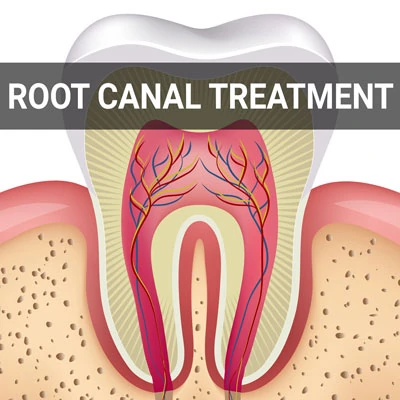Endodontic Surgery La Jolla, CA
When root canals fail, endodontic surgery may be a viable option to salvage damaged teeth. Unlike other tooth replacement options, endodontic surgery can help to maintain your natural teeth as much as possible. Endodontic surgery can prevent unnecessary tooth extraction and replacement.
At La Jolla Dental Group, we can help you learn more about endodontic surgery in La Jolla and the surrounding area. Depending on your situation, this option may be more cost-efficient and low-maintenance than other replacement options. Call us at (858) 257-4085 to schedule a consultation.
Understanding Endodontic Surgery
When a patient's tooth has become badly decayed or infected, they may need to undergo a root canal to salvage the tooth. According to WebMD, most root canals are successful; however, several complications may emerge that require moving onto endodontic surgery. Endodontic surgery may refer to any surgery that attempts to salvage a patient's tooth after non-surgical options have failed or are not available. This can help prevent the need for tooth extraction and replacement.
“Endodontic surgery may refer to any surgery that attempts to salvage a patient’s tooth after non-surgical options have failed or are not available.”
When to Get Endodontic Surgery
Several different situations may require endodontic surgery. Here are some of the most comon:
Calcification
Sometimes, non-surgical root canal procedures are not an option due to excessively narrow canals in the teeth. This happens when calcium deposits make it impossible for the non-surgical instruments to reach the end of the root. In such cases, endodontic surgery is necessary to clean and seal the remainder of the canal.
Damage
Often, damage to the root surfaces or surrounding bone cannot be adequately treated with non-surgical solutions. Endodontic surgery can remove the necrotic or damaged pulp of the tooth.
Diagnosis
Patients who have persistent symptoms of discomfort may undergo X-rays and other forms of non-surgical treatment to try to identify the problem. Because endodontic surgery examines the entire root, it can help identify tiny fractures or canals that can go otherwise undetected.
Retreatment
Root canals are usually complication-free; however, a tooth may become painful or diseased months to years after treatment. Endodontic surgery can address such matters of improper healing or infection.
According to the American Association of Endodontists, there are many different types of endodontic surgery. Apicoectomy, a procedure that removes the tip of the root, is the most common. Other procedures include dividing a tooth in half, repairing an injured root, and removing one or more roots.
“Endodontic surgery can remove the necrotic or damaged pulp of the tooth.”
Preparing for Endodontic Surgery
Every endodontic surgery begins with an initial consultation with a dentist.The dentist may be able to perform a comprehensive exam to determine if a patient should consider endodontic surgery. Maintaining an open and honest dialogue with the dental professional is key to preparing for endodontic surgery. Patients should be forthcoming about any prescription medications, vitamins, over-the-counter drugs, and supplements that they are taking.
Any of these products may influence the progression of the surgery. Furthermore, the dentist may need to consult with the patient's primary care physician if the patient is undergoing treatment for other medical conditions. All of these factors are key in preparing the ideal treatment plan for each patient.
“The dentist may be able to perform a comprehensive exam to determine if a patient should consider endodontic surgery.”
Check out what others are saying about our dental services on Yelp: Endodontic Surgery in La Jolla, CA
What to Know About Endodontic Surgery
Knowing what to expect from an endodontic surgery can better prepare patients for the procedure. Patients can rest easy knowing that modern technologies such as digital imaging and operating microscopes allow endodontic surgeons to work more quickly and successfully than ever before.
Before endodontic surgery, the surgeon will inject a local anesthetic in the patient's gums. An apicoectomy, also known as a root-end resection, is the most well-known type of endodontic surgery. During this procedure, the surgeon will open the gum tissue near the tooth to expose the underlying bone. At this point, the surgeon will remove any inflamed or infected tissue, along with the end of the root.
“Patients can rest easy knowing that modern technologies such as digital imaging and operating microscopes allow endodontic surgeons to work more quickly and successfully than ever before.”
Questions Answered on This Page
Q. What is endodontic surgery?
Q. Do I need endodontic surgery?
Q. How can I prepare for endodontic surgery?
Q. What can I expect during endodontic surgery?
Q. What is it like to recover from endodontic surgery?
People Also Ask
Q. What is the difference between endodontists and dentists?
Recovering After Endodontic Surgery
Toward the end of the procedure, some patients may receive a small filling to seal the end of the root canal. They may also require some stitches or sutures to assist in tissue healing. The bone in the surrounding area of the root will continue to heal over the next few months. Most patients can return to normal activities as soon as one day after surgery, and any post-surgical discomfort tends to be mild and easily manageable.
“Most patients can return to normal activities as soon as one day after surgery, and any post-surgical discomfort tends to be mild and easily manageable.”
Frequently Asked Questions
Q. Does endodontic surgery hurt?
A. Your surgeon will inject your gums with a local anesthetic at the beginning of your surgery. This ensures that you will not suffer any unnecessary discomfort throughout the procedure. However, as with any surgery, you may experience some pain or swelling while your incision heals. You can manage any symptoms with recommended or prescribed medication.
Q. Will I be able to drive myself home after endodontic surgery?
A. Some patients can, but this is not always the case. Ask your surgeon before the day of the surgery so you can make any necessary transportation arrangements well in advance.
Q. Will my insurance cover endodontic surgery?
A. The answer to this is different for everyone. It is common for dental insurance plans to cover a portion of the cost after a deductible has been met. Talking directly to your insurance company or employer is the best way to determine what type of coverage you have.
Q. Are there any alternatives to endodontic surgery?
A. Usually, tooth extraction is the only alternative to endodontic surgery. Tooth extraction can end up being a more costly option, as it will require tooth replacement to maintain tooth function and prevent shifting. The dental professional can conduct a comprehensive oral exam during a consultation to determine which options are best for you.
Q. Will I need to take special care of my tooth after endodontic surgery?
A. Endodontically treated teeth typically last as long as natural teeth without any special care. However, in the rare instance that a treated tooth does not heal or causes pain that does not subside, an endodontic retreatment procedure may be necessary.
Endodontic Terminology
Learn More Today
Endodontic surgery can vastly improve many patients' overall dental health. At La Jolla Dental Group, we can help figure out the best treatment plan for you. Call us today at (858) 257-4085 to schedule an appointment.
Helpful Related Links
- American Dental Association (ADA). Glossary of Dental Clinical Terms. 2024
- American Academy of Cosmetic Dentistry® (AACD). Home Page. 2024
- WebMD. WebMD’s Oral Care Guide. 2024
About our business and website security
- La Jolla Dental Group was established in 2002.
- We accept the following payment methods: American Express, Cash, Check, Discover, MasterCard, and Visa
- We serve patients from the following counties: San Diego County
- We serve patients from the following cities: La Jolla, San Diego, Pacific Beach, Mira Mesa, Del Mar, Solana Beach, Coronado, Poway, La Mesa, National City, Chula Vista, Lemon Grove, Spring Valley, El Cajon, Carlsbad, Rancho Santa Fe and Encinitas
- Norton Safe Web. View Details
- Trend Micro Site Safety Center. View Details
Back to top of Endodontic Surgery











